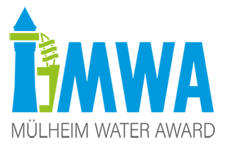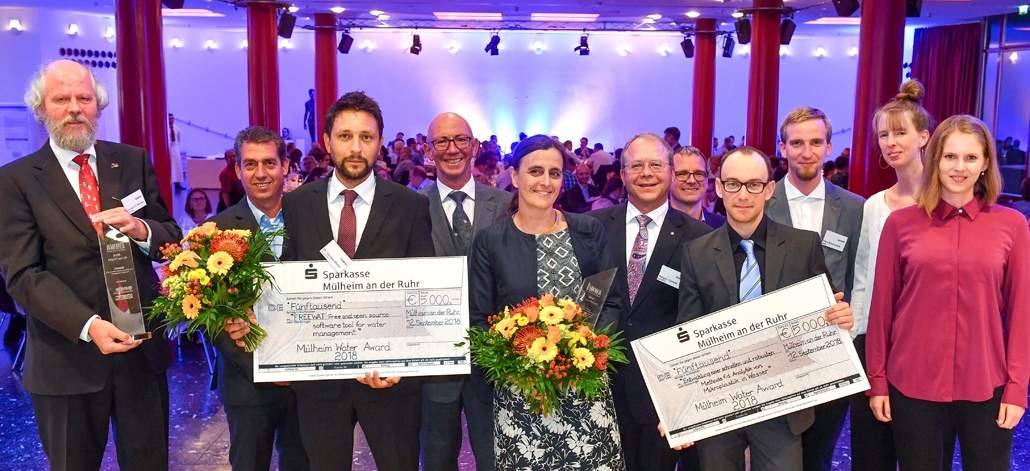Two winners for the Mülheim Water Award 2018
This year the international jury decided in favour of two projects.
The Lord Mayor of Mülheim, Mr. Ulrich Scholten, conducted the award ceremony on September 12th 2018 at the award dinner held in the course of the 3. Mülheimer Wasseranalytisches Seminar (MWAS 2018) in Mülheim an der Ruhr.
The first winning project titled
Development of a fast and robust method for the analysis of microplastic in water
was carried out by Dr. Ulrike Braun and Dr. Erik Dümichen from „Bundesanstalt für Materialforschung und -prüfung (BAM)“ in Berlin and their project team.
The analytics of microplastic is currently in the focus of many research activities. So far, mainly spectroscopic methods are used, which are time-consuming and do not allow a quantification of the amount of different polymers in environmental samples. As a complementary method the hyphenation of an thermogravimetric unit with GC-MS was further developed within the project „Mikroplastikanalytik“ over the last few years. The innovation mainly consists of the spatial separation of the heating step with subsequent adsorption of the decomposition products and the analysis via thermodesorption – GCMS. The method allows a safe identification and quantification of different kinds of polymers. The effort and measurement time needed for each sample is small.
The newly developed method has already been implemented at numerous research institutes and an automated solution is being established right now. Results were also well published in renown scientific journals.
Award Ceremony 2018 in the Stadthalle Mülheim an der Ruhr.
The second winning project, submitted by Dr. Iacopo Borsi, TEASISTEMI, Pisa-Italy, is titled
FREEWAT – Free and open source software tool for water management.
In this project a Q-GIS-Plug-In was developed to optimize numeric simulation of water quality and water quantity based on hydrological and hydrogeological data. It helps authorities, planners and consultants to cope with challenges within the field of water resource management, using an innovative and open-source based solution. Possible applications range from transboundary management of aquifers to simulating dispersal of contaminants in water bodies. 14 case studies in Europe and Africa have proved this. Moreover, FREEWAT shows a broad usage in research and teaching when supported by detailed documentation and execution of trainings.
FREEWAT was rewarded because it fosters further innovation through an integrative use of diverse modelling components.



